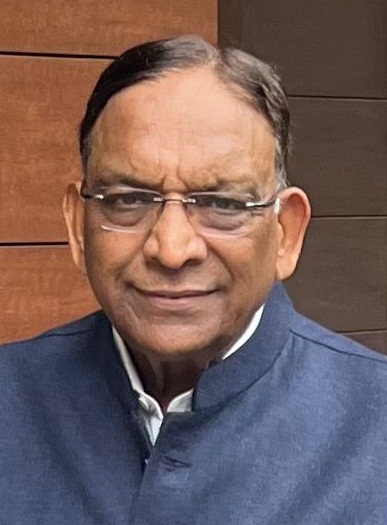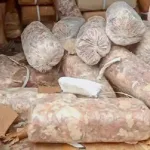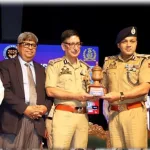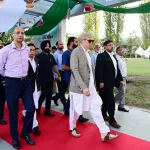Healthcare professionals in India are increasingly facing the threat of violence, both physical and verbal, at their workplaces. These incidents often result from high-pressure situations, miscommunication, or unmet expectations during critical medical emergencies. However, what exacerbates this situation is the inadequate legal framework to ensure the safety and dignity of doctors across the nation.
The recent report submitted by the National Task Force (NTF), dismissing the need for a Central Protection Act to safeguard medical professionals, has sparked widespread outrage across the medical fraternity. While this decision is disappointing, it is hardly surprising, given the apparent disconnect between the task force’s conclusions and the harsh realities faced by healthcare workers on the ground. The NTF’s assertion that existing state laws are sufficient to address violence against doctors is both meaningless and unruly, as these laws vary significantly in their implementation and effectiveness, leaving medical professionals—especially in rural and underserved areas—exposed to frequent threats and attacks.
However, this is far from the end of the road. The NTF’s report is, after all, just an opinion, and the medical fraternity remains determined to escalate the matter to the Supreme Court. There is hope that the judiciary, with its capacity for empathy and sensitivity, will recognize the urgent need for a unified, humanity-centered approach to protecting doctors. A Central Protection Act is not just a legislative demand; it is an essential step to ensure the safety, morale, and efficiency of those who dedicate their lives to saving others. Now more than ever, the moment calls for introspection and decisive action to restore faith in the healthcare system and safeguard its backbone—the medical professionals.
The increasing threat to doctors
In recent years, reports of violence against medical professionals have surged. These incidents range from verbal abuse and threats to physical assaults and damage to hospital property. For instance, small-town and rural hospitals, where resources are scarce, are particularly prone to mob violence, often triggered by patient deaths or delays in treatment.
Such attacks not only harm doctors physically but also leave lasting emotional scars. Many doctors have been forced to reconsider their willingness to serve in high-risk areas, worsening the healthcare crisis in underserved regions. Violence in hospitals creates an atmosphere of fear, disrupts patient care, and ultimately erodes the trust between healthcare providers and the communities they serve.
India’s current legal framework to address violence against doctors is fragmented and inconsistent. While some states, such as Andhra Pradesh, have passed legislation to increase penalties for attacks on medical professionals, others rely on outdated or ineffective laws. This inconsistency has created a patchwork system where the level of protection doctors receive is determined by their geographic location rather than the inherent risk of their profession.
Moreover, even in states with strong legal provisions, enforcement remains a major challenge. In many cases, perpetrators are not held accountable due to procedural delays, lack of awareness, or inadequate implementation of the law. These gaps render the existing state laws insufficient to address the scale and severity of the problem.
The lack of a unified legal framework also creates confusion among law enforcement agencies, which may not prioritize cases of violence against doctors. This not only delays justice but also emboldens aggressors, perpetuating a cycle of violence.
Central Protection Act to safeguard medical professionals
Such a law would offer a standardized and robust legal framework to address violence against doctors across the country. Some of my suggestions to the GOI, on behalf of the entire medical fraternity are as follows:
- Uniformity Across States: A central law would eliminate the discrepancies in legal protections for doctors, ensuring that all medical professionals, regardless of where they work, are safeguarded under the same standards.
- Deterrence Through Stricter Penalties: Enhanced punishment, including making offenses non-bailable, would act as a strong deterrent against violence. This would send a clear message that acts of aggression against doctors will not be tolerated.
- Improved Enforcement: A centralized law would establish clear protocols for law enforcement agencies, ensuring that cases of violence are dealt with promptly and effectively.
- Boosting Doctors’ Morale: Knowing that the law unequivocally protects them would reassure medical professionals, encouraging them to serve in high-risk areas without fear.
- Building Trust in Healthcare: By safeguarding doctors, a Central Protection Act would also help restore the trust between healthcare providers and the public, creating a more harmonious healthcare environment.
While the enactment of a Central Protection Act is a crucial step, it must be accompanied by other measures to create a safe and supportive environment for doctors. These include:
- Strengthening Hospital Security: Hospitals must invest in adequate security measures, including surveillance systems, alarm mechanisms, and trained personnel to manage potential conflicts.
- Creating Awareness: Public awareness campaigns can help educate communities about the challenges faced by doctors and the importance of mutual respect and understanding in healthcare settings.
- Establishing Rapid Response Teams: Specialized units within hospitals and law enforcement agencies can be trained to respond swiftly to incidents of violence, ensuring that such situations are contained before they escalate.
- Training for Conflict Resolution: Doctors and hospital staff can be provided with training in communication and conflict resolution to handle tense situations effectively.
- Zero-Tolerance Policy: Hospitals and healthcare organizations must adopt and enforce a zero-tolerance policy towards violence, ensuring that any act of aggression is met with immediate and decisive action.
The healthcare community is not demanding privilege but fairness. Doctors, like any other professionals, deserve to work in an environment where their safety and dignity are respected. The government must recognize the urgent need for a robust and unified legal framework to address this issue.
The time to act is now. Doctors, who dedicate their lives to saving others, must not be left vulnerable to violence and fear. A safe doctor is a confident doctor, and a confident doctor is the foundation of a healthy nation.
(The Author served as National President, Indian Medical Association. Chairman Action Committee – Indian Medical Association. Recipient of Dr BC Roy National Award)








